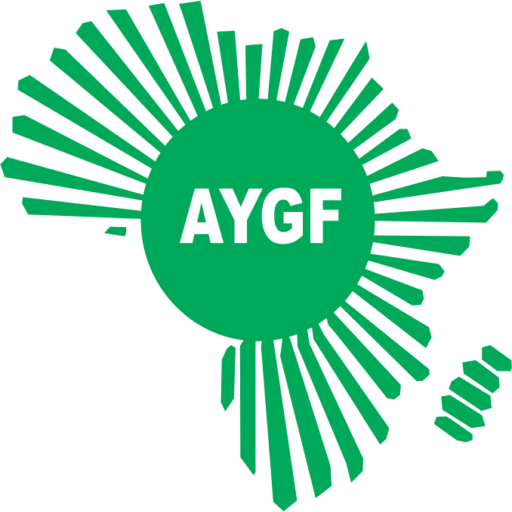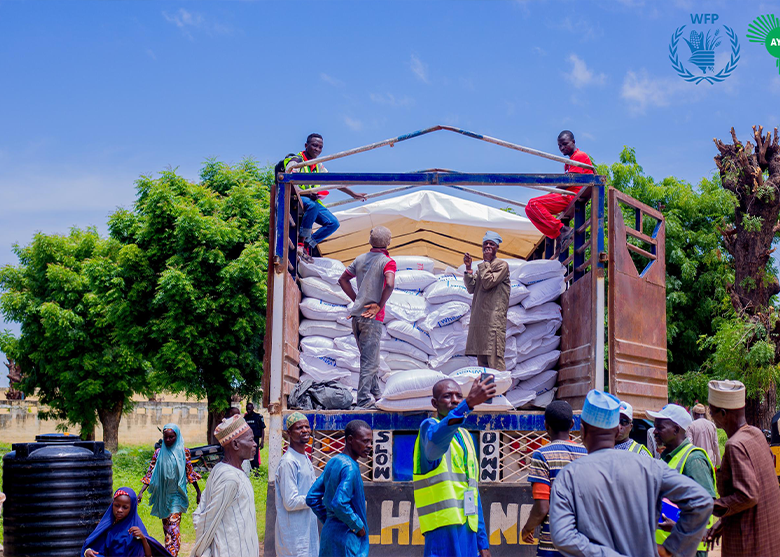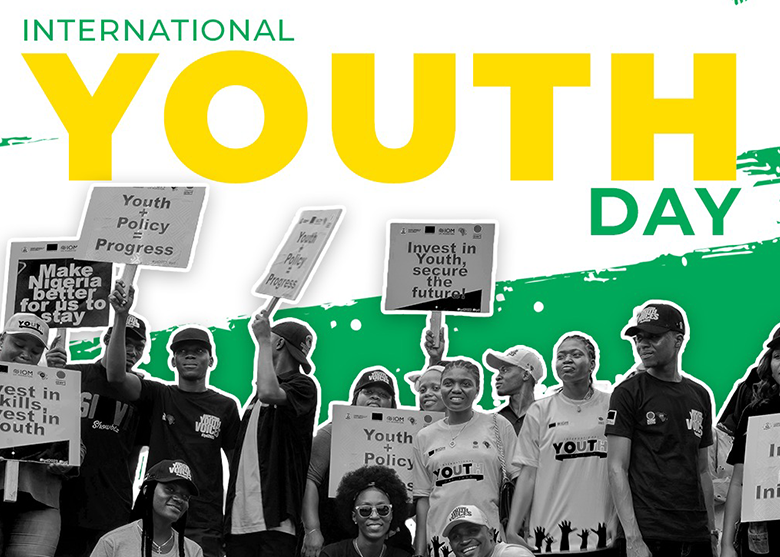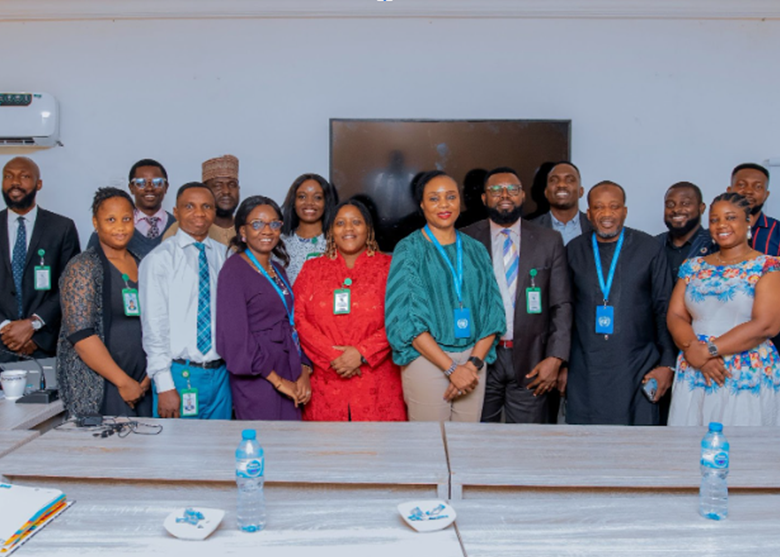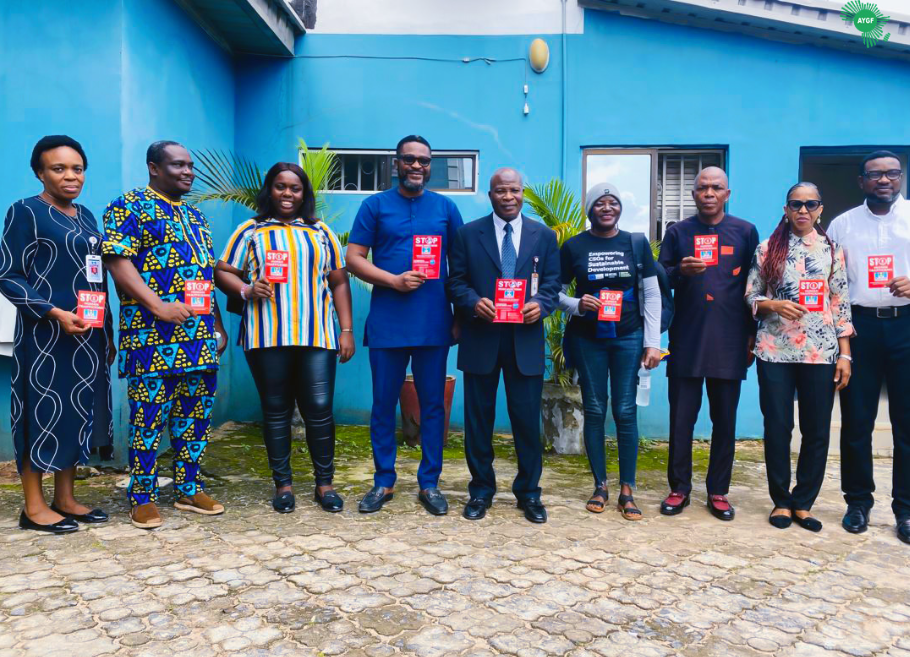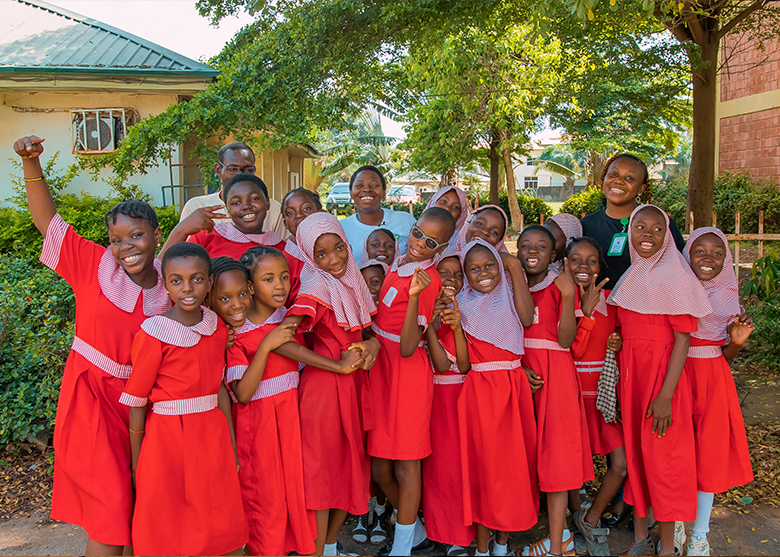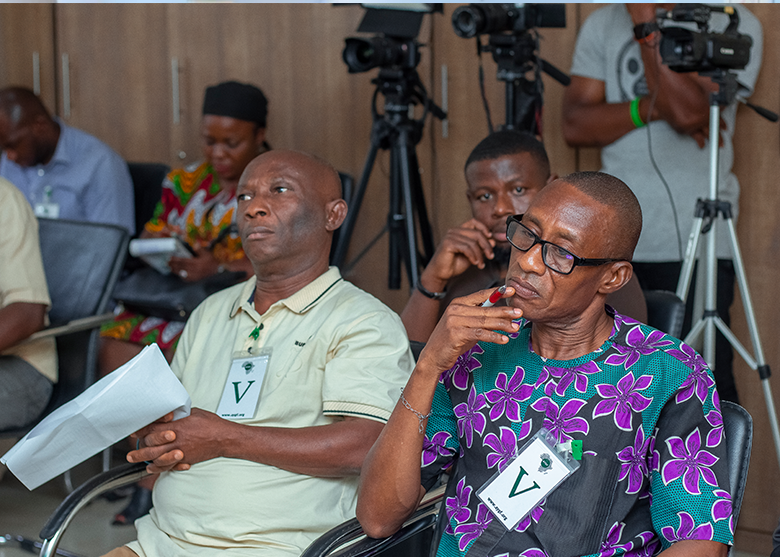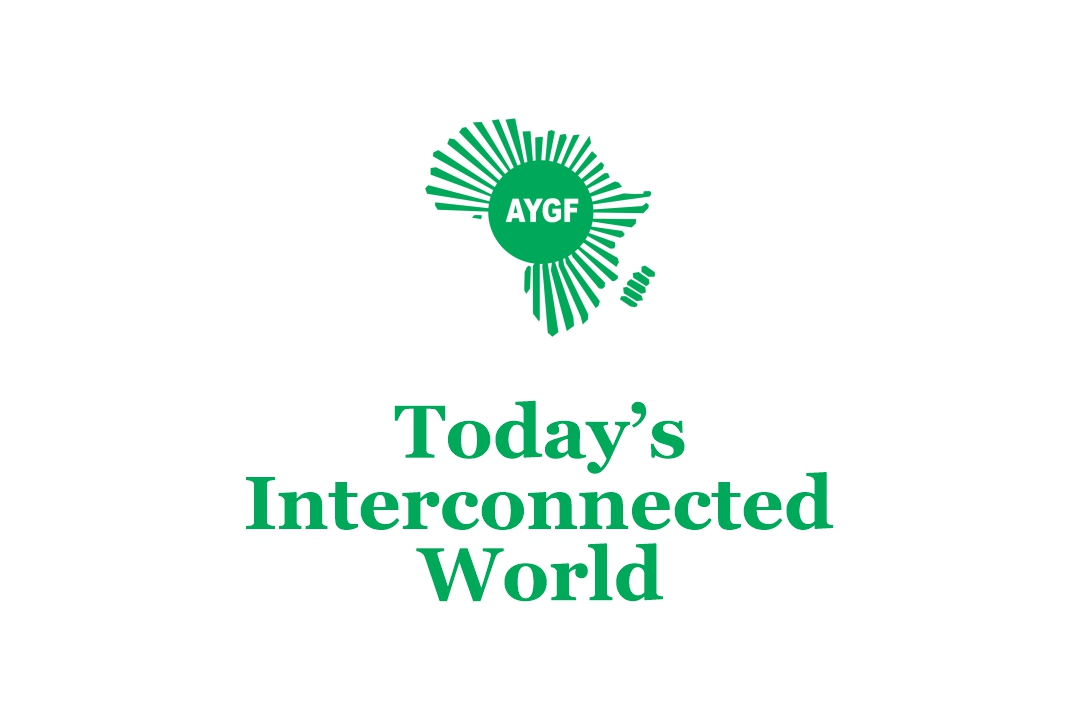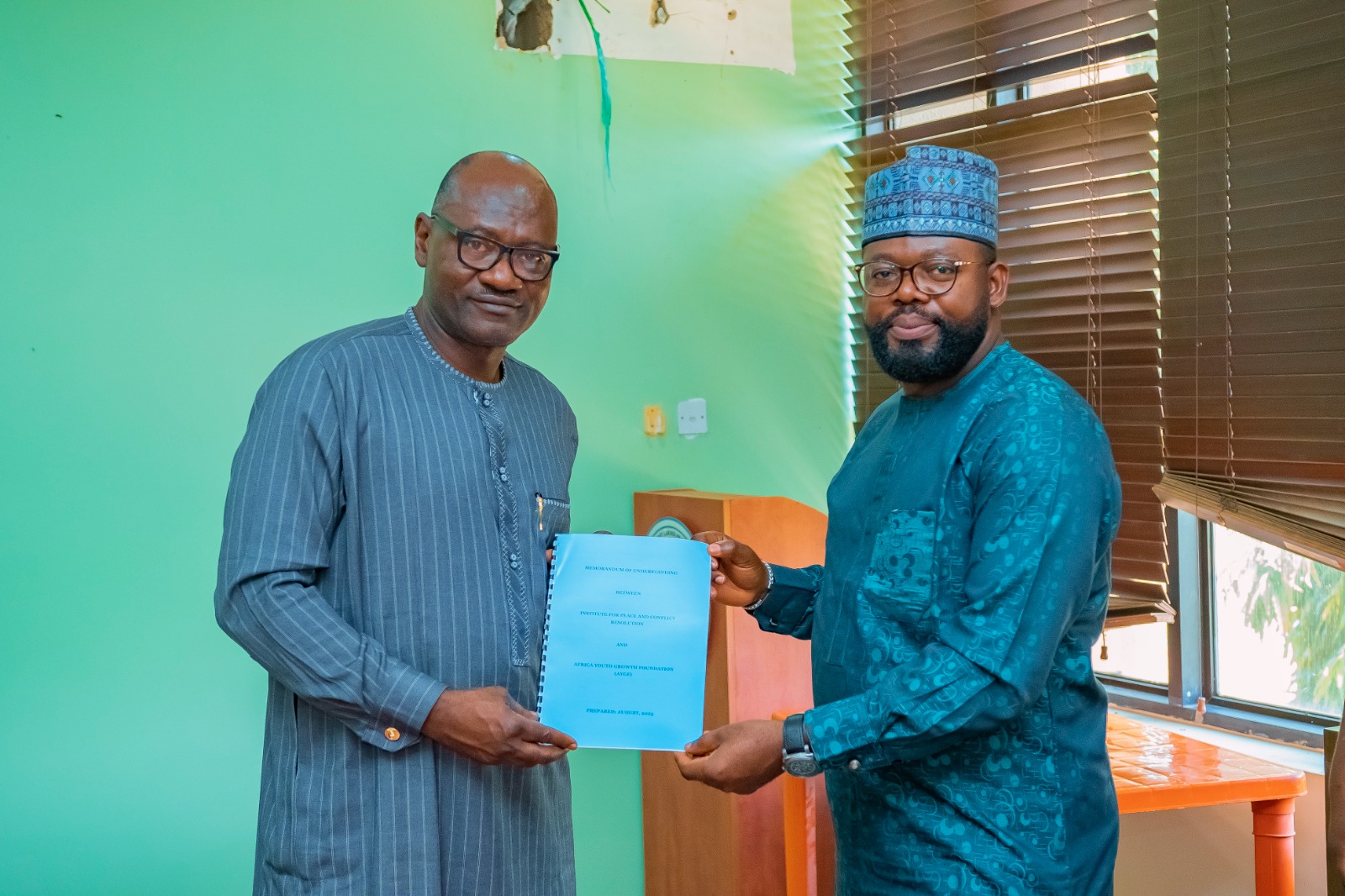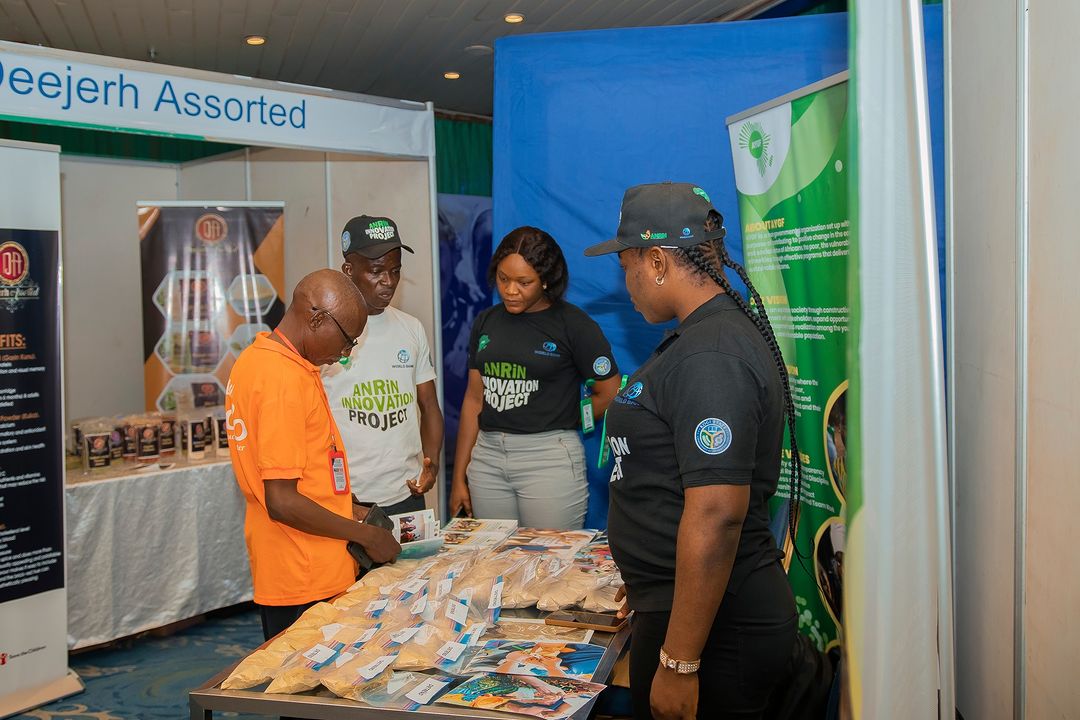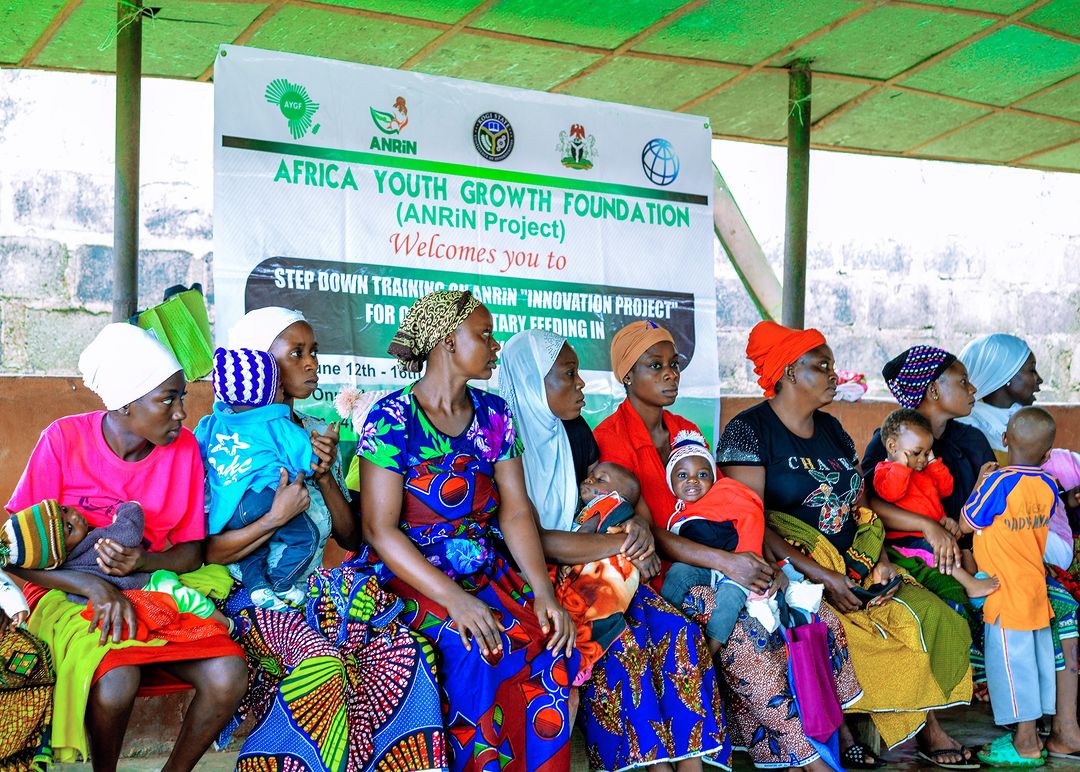According to the World Food Programme, the number of food-insecure Nigerians has dramatically risen from 66.2 million in Q1 2023 to 100 million in Q1 2024. Among these, 18.6 million are facing acute hunger, while 43.7 million are using crisis-level or worse coping strategies for hunger as of March 2024. In Northern Nigeria, the ongoing food crisis caused by security unrest remains a top priority. We are deeply committed to strengthening livelihoods to proactively address this critical issue. In response to this growing crisis, AYGF, in partnership with the WFP, has launched a wheat distribution project to support over 68,000 vulnerable households across 5 LGAs in Katsina State. The project launch, led by our Executive Director, Dr. Arome Salifu, was attended by esteemed dignitaries, including Dr. Hakeem Ajibola, UN WFP Representative; Maryam Sodangi, Senior Special Assistant to Governor Dikko Radda; and Madakin Katsina, Alhaji Hamza Abubakar-Duwan, representing the Emir of Katsina. This partnership demonstrates a united front in the fight against food insecurity. We remain dedicated to supporting vulnerable communities by providing essential food resources. Together, we are taking significant steps toward reducing hunger and offering hope to those in need, one household at a time. Our dedicated team of field officers is diligently working to ensure the seamless implementation and ultimate success of this vital project. Through this initiative, our primary objective is to eradicate food insecurity and empower the livelihoods of numerous beneficiaries.
Empowering Nigerian Youth Through Digital Pathways: A Comprehensive Approach for Sustainable Development
Written By Joan Anosike & Oloruntobi Adejare On August 12th, the world celebrated the United Nations’ International Youth Day (IYD) 2024, a day dedicated to recognising the potential of young people as agents of change. This year’s theme, “From Clicks to Progress: Youth Digital Pathways for Sustainable Development,” underscores digital technology’s role in empowering youth to lead the charge towards a sustainable future. This day not only recognises youth as vital contributors to society but also emphasises the intersection of technology and sustainable development. The 2024 theme calls for an increased focus on digital inclusion, skills development, youth participation in decision-making processes, and fostering global collaboration on youth-centric issues. Sustainable Digital Initiatives in Nigeria: A Blueprint for Progress Nigeria with its burgeoning youth population, has the potential to lead the continent in sustainable development through the strategic use of digital technology. By implementing a series of targeted initiatives, the nation can create lasting, positive impacts on the lives of its young people using the following methodologies; 1. Expanding Digital Infrastructure To bridge the digital divide broadband access should be expanded to more rural areas. This can be achieved through partnerships with telecom companies to install fibre optic networks and mobile towers in underserved regions. Ensuring that every young person has access to high-speed internet is the foundation of digital empowerment. 2. Community Tech Hubs and Innovation Centers Establishing community tech hubs and innovation centres in each local government area will provide shared workspaces, high-speed internet, and tech resources. These centres can host training sessions for youths, offering the opportunity to develop crucial digital skills in an environment that fosters creativity and innovation. 3. Affordable Access to Technology To ensure that no youth is left behind, the government should introduce programs that provide subsidised devices and internet access for low-income youth. This could include government-backed initiatives offering affordable smartphones or tablets with data plans at reduced rates. Partnering with device manufacturers and telecom providers is key to making this a reality. 4. Integrating Digital Literacy into Education Digital literacy is the cornerstone of a digitally empowered youth. Integrating computer science and digital skills classes into the school curriculums from primary through secondary levels will ensure that every student is equipped with the knowledge needed to thrive in the digital age. Additionally, Offering free online courses in emerging technologies, such as AI and blockchain, can further enhance these efforts. Collaborating with tech companies to provide apprenticeship programs will give students hands-on experience, preparing them for the future job market. 5. Fostering Youth-Led Innovation Creating startup incubators focused on sustainable tech solutions will encourage young entrepreneurs to develop innovative ideas that align with the Sustainable Development Goals (SDGs). Providing seed funding for youth-led social enterprises will enable these ideas to come to life, fostering a new generation of entrepreneurs dedicated to social impact. 6. Enhancing Youth Participation in Governance Developing e-governance platforms that allow youth participation in decision-making processes is vital for the growth of any democratic nation. Implementing digital voting systems can increase youth electoral engagement, ensuring their voices are heard in shaping the nation’s future. Additionally, creating youth advisory boards for tech policy development will ensure that policies are aligned with the needs and aspirations of the younger generation. 7. Building Mentorship Networks Connecting rural and urban areas through mentorship networks will bridge the gap between communities, allowing knowledge and resources to flow freely. Experienced professionals can guide young people in rural areas, providing them with the support needed to succeed in the digital world. 8. Leveraging AI and Big Data for Targeted Interventions Using AI and big data to identify areas where youth-focused interventions are most needed can ensure that resources are allocated efficiently. Developing youth-centric impact measurement tools will help track the success of these initiatives, providing valuable insights into how they can be improved. By implementing these digital pathways, Nigeria can harness the power of technology to create sustainable opportunities for its youth. This approach will drive progress towards the Sustainable Development Goals; while fostering a new generation of digitally empowered change-makers. The future of Nigeria lies in the hands of its youth, and by equipping them with the tools and opportunities they need, we can ensure a brighter, more sustainable future for all. As we commemorate IYD 2024, let us commit to making digital empowerment a reality for every young person in Nigeria, and in doing so, build a nation where innovation and progress are the hallmarks of our collective success.
AYGF PARTNERS WITH WFP FOR A PROJECT IN KATSINA STATE
We are also thrilled to announce a groundbreaking partnership between the United Nations World Food Programme (WFP) and AYGF to address the food crisis in Katsina State. This collaboration will see the distribution of Ukrainian wheat to 86,389 households in five Local Government Areas, (Batsari, Safana, Detsinma, Kurfi and Danmusa) providing critical support to families facing food insecurity. This partnership marks the beginning of a long-term commitment to addressing food insecurity in Katsina State and beyond. By working together, we are paving the way for sustainable solutions that can be replicated in other regions facing similar challenges. As part of the partnership onboarding process, AYGF had the privilege of hosting representatives from the World Food Programme (WFP) at the HQ. The onboarding was part of a routine capacity assessment exercise. These assessments are crucial for evaluating and enhancing the capabilities of NGOs that specialize in Nutrition and Food Security project During the meeting, several critical topics were discussed, bringing forward strategic ways to tackle food insecurity in Nigeria. The key areas of focus included: Innovative Practices: We explored new technologies and methods that could improve food production, storage, and distribution. Innovations in agriculture, logistics, and resource management were discussed to enhance our overall effectiveness in fighting food insecurity. Efficient Distribution Methods: The discussion emphasized the need for more efficient and reliable systems to ensure that food reaches those in need, especially in remote and underserved areas. Community Engagement Initiatives: By engaging with community members, we can ensure that our interventions are sustainable and tailored to their specific needs. This includes educational programs, local partnerships, and empowering communities to take active roles in their food security. We are confident that by implementing these strategies, we can make significant strides toward achieving sustainable food security in Nigeria where no one has to suffer from hunger.
AYGF KICKS-OFF RESTIPP PROJECT IN EDO STATE IN PARTNERSHIP WITH UNODC TO TACKLE HUMAN TRAFFICKING.
July brought a wave of good news as we launched a new project in Edo State called the Reintegration, Empowerment, and Sensitization for Trafficking in Persons Program (RESTIPP). This initiative, in partnership with the United Nations Office on Drugs and Crime (UNODC), aims to combat human trafficking by providing support and empowerment to women and girls, while raising awareness about the dangers and realities of trafficking. To kick off the project, the Edo team led by the Program Manager, Adams Omoba paid a courtesy visit to the National Agency for the Prohibition of Trafficking in Persons (NAPTIP) Edo Zonal Office. The team was received by the Zonal Coordinator Mr Ganiu Agangan, who commended AYGF for its effort in tackling issues related to trafficking and illegal migration. He expressed NAPTIP’s commitment to collaborating with AYGF for the success of the RESTIPP project. The RESTIPP project which will focus on women and girls for the next few months, aims to: As we move forward with the RESTIPP project, we are committed to making a lasting impact in Edo State and beyond. We look forward to sharing more updates and success stories as the project progresses.
AYGF EDUCATES 100 STUDENTS AT LEA 1 WUSE ZONE 2 ON SAFE PRACTICES TO PREVENT CHOLERA
Nigeria has had to grapple with an unexpected increase in Cholera cases in the last few weeks. A situation report from the Nigeria Centre for Disease Control (NCDC) indicates over 1000 suspected cases, across 31 states. As part of our ongoing efforts to combat the Cholera Outbreak in Nigeria, AYGF recently took the awareness campaign to LEA 1 Wuse Zone 2. The team engaged with over 100 pupils, emphasizing the critical importance of handwashing, and other ways to prevent the spread of cholera.. Handwashing with soap can significantly reduce the transmission of cholera and other infectious diseases. It’s one of the simplest yet most effective measures to prevent the spread of germs. By educating children, we are empowering the next generation to adopt healthy habits that can protect their families and communities.
Why a Free Press is Our Lifeline in the Face of Environmental Crisis: AYGF Marks World Press Freedom Day
Established by the United Nations General Assembly in 1993, Press Freedom Day commemorates the freedom of the press and pays homage to journalists who have sacrificed their lives in the line of duty. Celebrated every 3rd of May, World Press Freedom Day commemorates the Windhoek Declaration, a cornerstone document advocating for free press and independent journalism. Journalists encounter significant challenges in seeking and disseminating information on contemporary issues, such as supply chain problems, climate migration, extractive industries, illegal mining, pollution, poaching, animal trafficking, deforestation, or climate change. This year, World Press Freedom Day is dedicated to the importance of journalism and freedom of expression in the context of the current global environmental crisis. Ensuring the visibility of these issues is crucial for promoting peace and democratic values worldwide. Local and international journalists play a vital role in exposing the harsh realities of the environmental crisis. They act as watchdogs, promoting peace and democratic values while ensuring the protection of vulnerable communities, particularly women and girls, who are disproportionately impacted by climate change. Misinformation surrounding environmental issues can be detrimental. It can hinder public support for climate action, weaken effective environmental policies, and leave vulnerable communities exposed. Accurate, timely, and comprehensive reporting on environmental issues and potential solutions is vital to achieving sustainable development. However, ensuring a free press requires action: Preventing and protecting journalists from violence and intimidation. Upholding the right to freedom of expression, scientific research, and access to information. Combating misinformation through responsible journalism. Over the years in Nigeria, the press has faced peculiar challenges that make it difficult for journalists to practice their profession freely and without fear. Journalists in Nigeria are frequently subjected to harassment, intimidation, and violence, especially when they report on sensitive issues like corruption, human rights abuses, insecurity, and climate issues. In some cases, journalists have been arrested, detained, and tortured for doing their job. The Nigerian press also faces economic challenges as many media organisations need help to stay afloat in a difficult economic environment such as is prevalent in the country presently. This has led to a decline in the quality of journalism, as media organisations prioritize revenue generation over quality reporting. Many journalists are also poorly paid and lack access to training and resources to improve their skills. It is important, that the welfare of the media considering the risk they take in the line of duty should be of utmost importance at all times as the fourth estate of the realm. Also, Promoting Media and Information Literacy programs is crucial for the development of any nation especially in the face of misinformation and disinformation. These programs equip users with the skills to critically evaluate information in the digital age, further supporting a free and informed public. A free press is not a luxury in the face of the environmental crisis; it’s a lifeline. By supporting a free press, we empower journalists to expose environmental threats, hold authorities accountable, and pave the way for a sustainable future. To achieve sustainable development, journalists must report accurately, timely, and comprehensively on environmental issues and their consequences, as well as on possible solutions. Let’s celebrate World Press Freedom Day by advocating for a free press and media literacy – it’s our planet’s future at stake.
Today’s Interconnected World
In today’s interconnected world, where barriers often separate us, we’re invited to embrace a profound idea. It’s the notion that, irrespective of our backgrounds, our voices are essential. Together, we possess the power to shape a world that’s more just, inclusive, and harmonious. Join the conversation, because this world belongs to all of us, collectively. Kudos to @dheeyerh, our Youth Ambassador for delivering this beautiful message. https://www.youtube.com/watch?v=hk_rcJjHmbs
AYGF and IPCR MOU
AYGF signs a new MOU with Institute for Peace and Conflict Resolution @ipcr.ng. This marks a significant step towards collaboration in peace building and conflict resolution. Together, we aim to build bridges, break down barriers, and pave the way for a brighter and more harmonious future.
AYGF Food Exhibition
AYGF present at the Ready to Use Therapeutic Food Exhibition organized by @usaid. The team exhibited complimentary feed designed during the innovation training.The primary aim of this feed is to contribute to the effective management of malnutrition. This event provided an opportunity for AYGF to showcase their efforts and commitment towards addressing malnutrition challenges.
Innovation Project
AYGF Kogi State implemented an innovation project in 4 local government areas. The project’s primary goal was to enhance the well-being of children by providing them with proper nutrition through the creation of complimentary feed. Together, we’re nurturing a healthier tomorrow, one child at a time!
